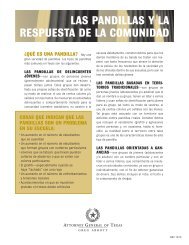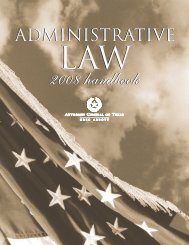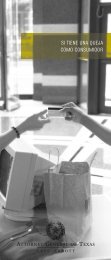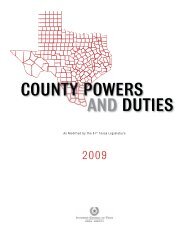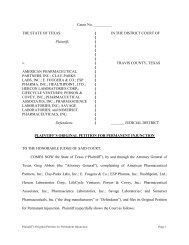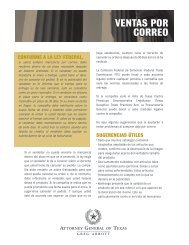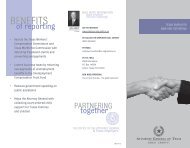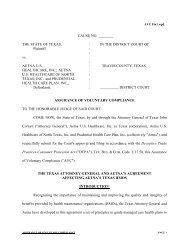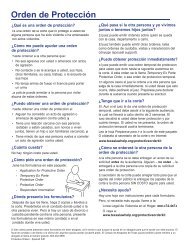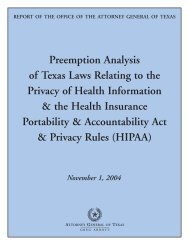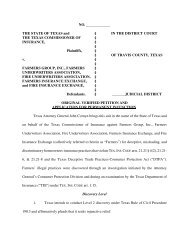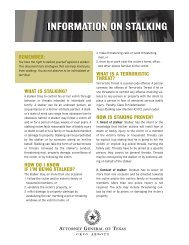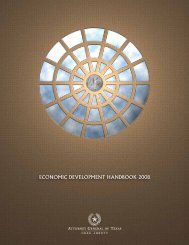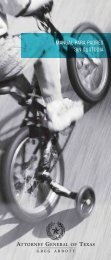Nuisance Abatement Manual - 2005 - Texas Attorney General
Nuisance Abatement Manual - 2005 - Texas Attorney General
Nuisance Abatement Manual - 2005 - Texas Attorney General
You also want an ePaper? Increase the reach of your titles
YUMPU automatically turns print PDFs into web optimized ePapers that Google loves.
§ 101.70. Common <strong>Nuisance</strong><br />
(a) A room, building, boat, structure, or other place where alcoholic beverages are sold,<br />
bartered, manufactured, stored, possessed, or consumed in violation of this code or under<br />
circumstances contrary to the purposes of this code, the beverages themselves, and all<br />
property kept or used in the place, are a common nuisance. A person who maintains or<br />
assists in maintaining the nuisance commits an offense.<br />
(b) The county or district attorney in the county where the nuisance exists or the attorney<br />
general may sue in the name of the state for an injunction to abate and temporarily and<br />
permanently enjoin it. Except as otherwise provided in this section, the proceeding is<br />
conducted as other similar proceedings.<br />
(c) The plaintiff is not required to give a bond. The final judgment is a judgment in rem<br />
against the property and a judgment against the defendant. If the court finds against the<br />
defendant, on final judgment it shall order that the place where the nuisance exists be<br />
closed for one year or less and until the owner, lessee, tenant, or occupant gives bond with<br />
sufficient surety as approved by the court in the penal sum of at least $1,000. The bond<br />
must be payable to the state and conditioned:<br />
(1) that this code will not be violated;<br />
(2) that no person will be permitted to resort to the place to drink<br />
alcoholic beverages in violation of this code; and<br />
(3) that the defendant will pay all fines, costs, and damages assessed<br />
against him for any violation of this code.<br />
(d) On appeal, the judgment may not be superseded except on filing an appeal bond in the<br />
penal sum of not more than $500, in addition to the bond for costs of the appeal. That<br />
bond must be approved by the trial court and must be posted before the judgment of the<br />
court may be superseded on appeal. The bond must be conditioned that if the judgment<br />
of the trial court is finally affirmed it may be forfeited in the same manner and for any<br />
cause for which a bond required on final judgment may be forfeited for an act committed<br />
during the pendency of an appeal.<br />
<strong>Nuisance</strong> <strong>Abatement</strong> <strong>Manual</strong><br />
<strong>2005</strong> Fourteenth Edition<br />
38<br />
Office of the <strong>Attorney</strong> <strong>General</strong><br />
Criminal Law Enforcement Division



